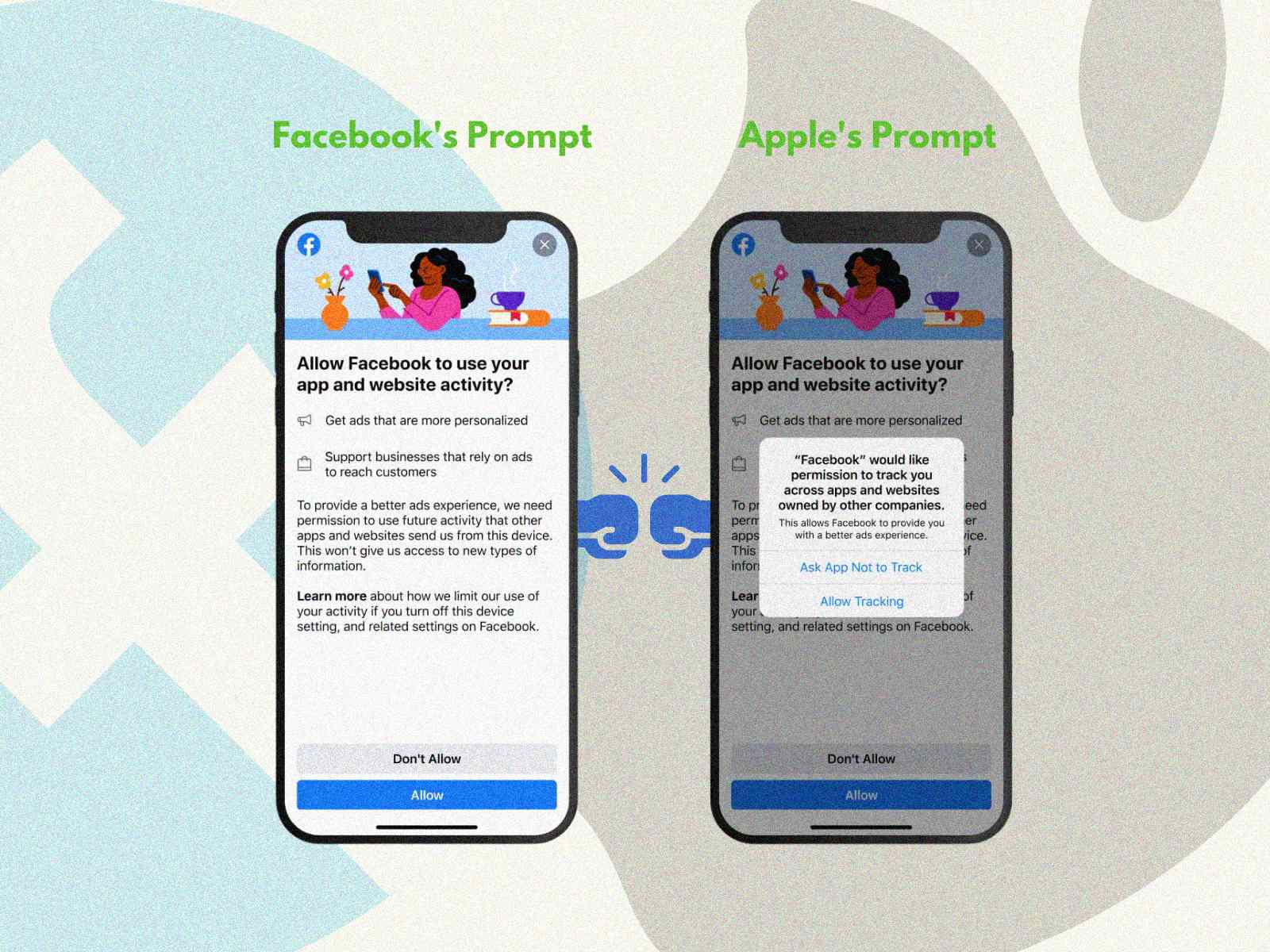
What is it all about?
So with the update, apps now have to show a pop-up asking for permission before tracking their footprints online. Either you do it or you’re crossed out of App Store. Facebook responded with disagreement, saying it’s speaking up for small businesses.
In the US alone, the opt-in rate ran around just 5% as of April, according to an analysis. Many e-commerce marketers started to panic. They rely heavily on events people take on their website to guide their Facebook ads for better retargeting.
How bad is it for e-commerce marketers, really?
Put simply, people are worried about their ads becoming less personalized, or more irrelevant.
Less concise lookalike audience: The concept is based on the assumption that people who look alike (not appearance, but demographic and psychographic) might act, or buy alike. Collecting all events happening on a website before purchasing is advertisers’ wildest dream. Now that data collection is eclipsed, samples get weaker. It’s not a dream anymore.
Less proof of return on ads spent (ROAS): Say, if a person sees a laptop case ads, click on it, and navigate their way all through art to cart. But they only decide to purchase it a month later. With the update, the ads will not get it credit rightfully because the attribution window has jumped from 28 days to just 7 days.
So is it the end for Facebook ads?
The good news is that even if people opt out, you can still track the most prioritized event out of 8 that you’re allowed to set up. Whatever action people take, the closest to the top event will be recorded.
Traditionally, events are shipped to Facebook with the help of FB pixel - a piece of code attached to your website to track events. Data is sent to pixel using browser-based cookie. But with all the data scandals, consumers are now more anxious than ever with their privacy. Earlier this year, Google announced its plan to say goodbye to tracking cookies on its Chrome browser by 2022, in a move towards a “more privacy-friendly web”.
Foreseeing what the future might hold for cookies, Facebook’s now advising people to combine both Pixel with its CAPI for a more thorough, full-funnel view of events, to make up for the missing data and safeguards more reliable data sharing.
How does CAPI work?
CAPI is processed like a browser-side pixel event, but instead of relying on the browser, data is shipped directly from the web server. This means a more secured transfer with fewer issues like a browser crash. Most importantly, advertisers control what and when to share the data.
This method of tracking is said to help advertisers get ahead of the game, with a technical effort.
If you want some backup tracking besides pixels, you might want to try this Facebook Multi pixel app with a new feature on CAPI. Here is how you can set it up.
So, what do you think? Is this privacy act just hype or here to stay?
And, is it really that bad?
